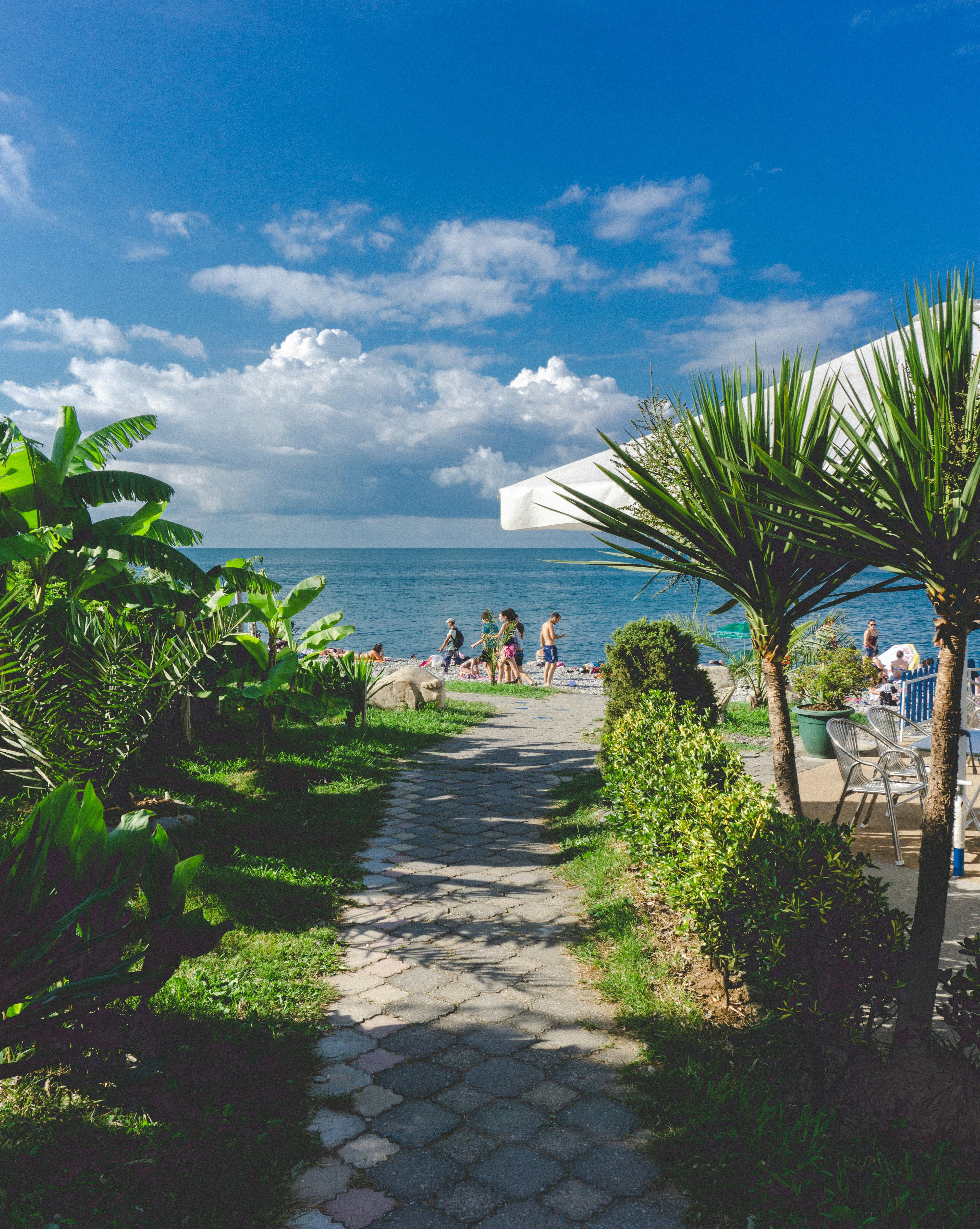Green spaces may significantly contribute to longevity, promoting a longer lifespan for individuals.
The Benefits of Nature Beyond Relaxation: How Green Spaces Extend Life
Green spaces such as parks, forests, and gardens have been found to have a powerful impact on our well-being, transcending the immediate feelings of peace and serenity. A plethora of studies reveals that nature can aid in prolonging life by enhancing physical and mental health, promoting social connections, and improving the community's well-being.
A Natural Counter to Stress
One of the most significant methods green spaces contribute to longevity is by acting as a natural stress reliever. With the pressures of work, family, and daily life, stress often creeps up unnoticed. This prolonged stress can have severe consequences on health, leading to heart disease, high blood pressure, and a weakened immune system – all factors that can shorten a person's lifespan.
Spending time in nature is shown to lower cortisol levels, the hormone associated with stress. Simple activities like taking a leisurely stroll in a park can help reduce stress, clear the mind, and boost one's mood. The tranquil effect of nature can create a sense of inner peace, counteracting the stressors of everyday life, and allowing the body to stay healthy and strong, leading to a longer, healthier life.
Contributing to Physical Health
Green spaces contribute not only to mental health but also to physical well-being. When one is outdoors, it is more likely to engage in physical activities like walking, jogging, or gardening. This regular movement is essential for maintaining a healthy body weight, improving cardiovascular health, and strengthening muscles and joints.
Exposure to natural sunlight, which one gets when outdoors, is crucial for vitamin D production. This 'sunshine vitamin' plays a vital role in bone health, immune function, and mood regulation. Many people struggle with vitamin D deficiency, especially those who spend most of their time indoors. By increasing time spent in green spaces, one naturally boosts their exposure to sunlight, supporting their body's production of the essential vitamin.
Green spaces are also transformative regarding air quality. Trees and plants act as natural air filters, absorbing pollutants and releasing oxygen. Spending time in parks or forests means breathing cleaner air, which supports better lung and overall health. This improvement in air quality reduces the risk of respiratory problems and strengthens cardiovascular health, critical factors in longevity.
Social Connections and Community Well-being
In addition to fostering social connections, green spaces play an essential role in community well-being. Parks, gardens, and other public spaces often serve as meeting places, permitting people to connect, unwind, and socialize. Such interactions help cultivate a feeling of belonging and support. Social connections are a vital component of mental and emotional health, with studies showing that people with strong social networks tend to live longer and are less prone to depression and anxiety.
Moreover, the presence of green spaces in urban areas has been linked to lower crime rates and improved community well-being. With people feeling safe and connected in their environment, it creates a positive feedback loop that elevates the overall quality of life. This improved sense of safety and community support converts into a lower stress environment, which, as previously mentioned, is vital for longevity.
Incorporating More Nature into Life
Given the numerous benefits, it is clear that spending more time in green spaces can significantly boost one's health and well-being. For those residing in cities or leading busy lives, incorporating more nature into daily routines can feel challenging. Seeking out local parks, gardens, or nature reserves for regular visits is a practical starting point. Even brief walks of 10-20 minutes can yield favorable effects.
Indoor plants are another constructive approach to increasing exposure to nature at home. Creating a small green area in one's backyard or even a balcony garden can offer easy access to the calming influence of nature. Including greenery in one's workplace can also foster a healthier work environment, benefiting mental and emotional well-being.
Ultimately, involving more green spaces in one's life can enhance vitality and extend one's lifespan. Whether it's through leisurely strolls, gardening, yoga, or picnics, the simple act of connecting with nature can empower one to lead a longer, healthier life filled with greater peace, joy, and connection.
- Engaging in exercises like walking, jogging, or gardening in green spaces contributes to maintaining a healthy body weight and strengthening muscles and joints, promoting physical wellness.
- The presence of trees and plants in green spaces improves air quality by absorbing pollutants and releasing oxygen, which leads to better lung and overall health.
- Strong social connections, often formed in green spaces, are crucial components of mental and emotional health, as people with strong social networks tend to live longer and experience less depression and anxiety.
- To reap the benefits of green spaces and incorporate more nature into daily life, one can visit local parks, tend to indoor plants, or even create a balcony garden, aiming to spend at least 10-20 minutes in nature each day for improved health and longevity.






